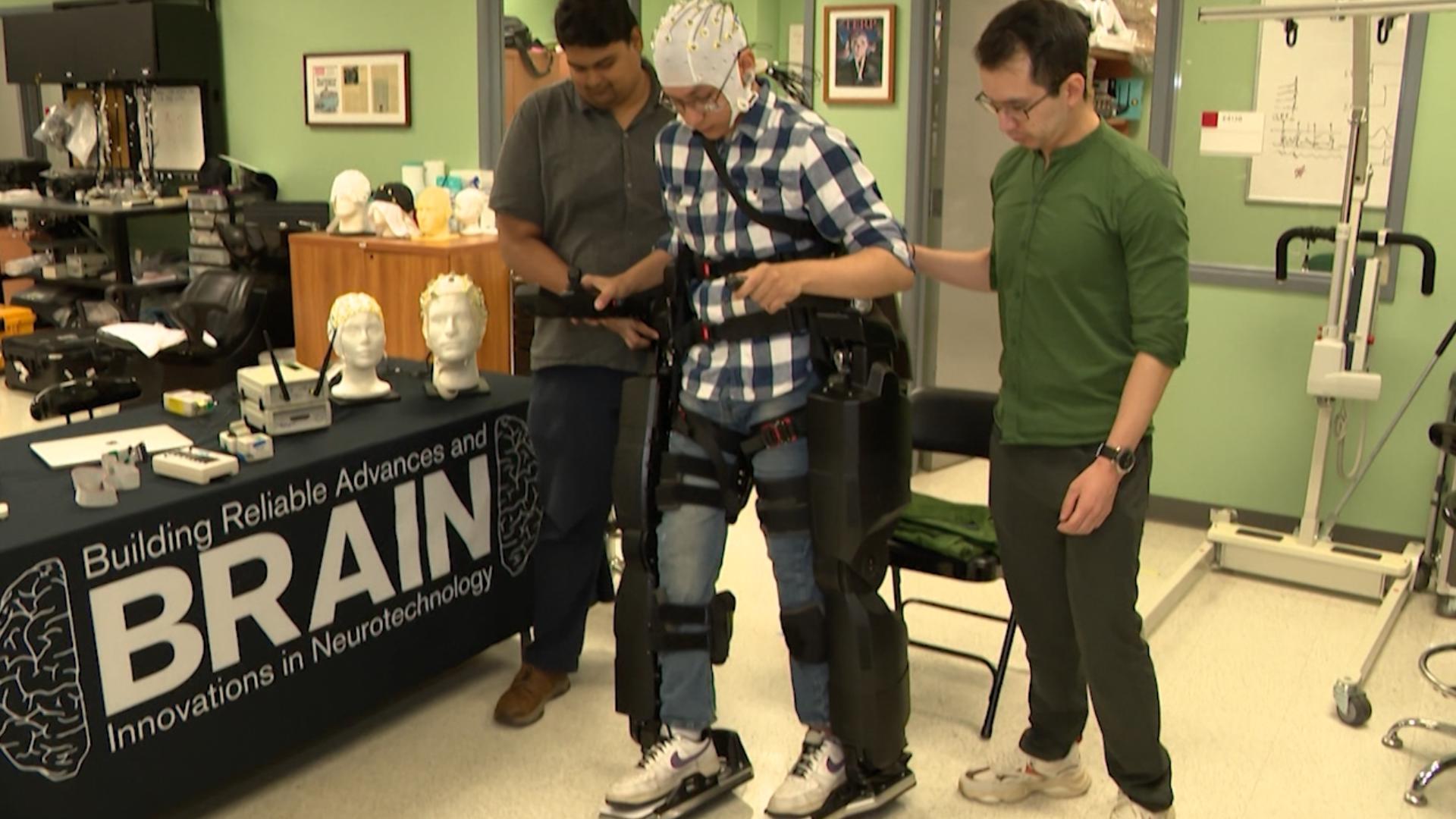HOUSTON — Imagine being able to control a device just by thinking about it.
The University of Houston’s BRAIN Center is working on making that thought a reality.
Its team just returned from the United Nations AI for Good Global Summit in Switzerland to demonstrate their research.
The lab works with exoskeletons, a robotic device designed to help paraplegic patients walk. The UH team’s goal is not just to use a joystick to control it, but also to use the mind.
Sensor caps read student Gabriel's brain waves, even as he simply thinks about walking. In Thursday's demonstration, the actual movement was controlled by a computer. It showed how training pairs the users' thoughts and the device's steps. Some paraplegics have already begun to use the system by thinking about their steps.
Now, UH Neuroscientist and Brain Center Director Dr. Jose Luis Contreras-Vidal is studying the brain waves of performers.
"Musicians, dancers, they have been highly trained -- they have an exquisite control of the body," Contreras-Vidal said.
Contreras-Vidal is hoping their brains can create clear maps to more expressive human movements. He envisions a day when the exoskeleton will be replaced by truly wearable technology.
"It will be more like a garment," Contreras-Vidal said.
Chronic stroke patients who need to relearn the use of their arms could also benefit. PhD student Lianne Sanchez Rodriguez demonstrated her project with brain sensors connected to a machine that moves the arm.
"We want to see when the person wants to move the arm. And that way we can try to rehabilitate the brain signals," Sanchez Rodriguez said.
Consider the possibilities: from depression to dementia ... Alzheimer’s patients with severe memory loss often still remember songs clearly.
"We know that music is powerful, right? You can change your mood. It can bring back memories. And so, there's no question that through music, we can gain access to the brain, to specific memory areas," Vidal-Contreras said.
Could doctors eventually prescribe music and dance to train the mind and heal the body? Maybe one day stimulating the right parts of the brain will be the therapy of choice versus surgery or pills.

